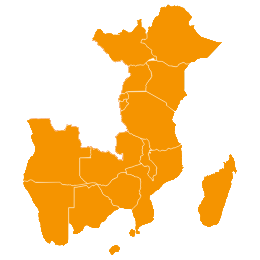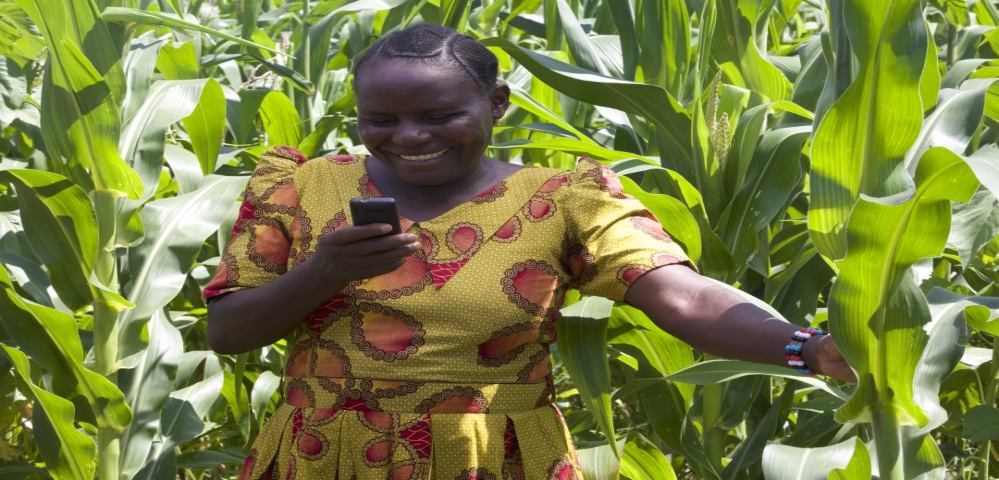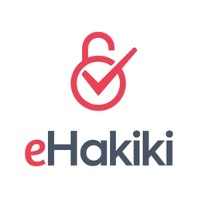eHakiki
‘The pilot programme has become so successful that genuine input companies readily embrace it, buying the eHakiki labels from the regulators’
Fatma Fernandes, Director of Business, Quincewood Group LtdBACKGROUND
Approximately 40 per cent of agricultural inputs (seeds, fertilizers and pesticides) bought in Tanzania are likely to be counterfeit. This solution engages government regulators, private-sector input providers and farmers. At agro-dealer shops, via their mobile phones, farmers can verify the authenticity of seeds or pesticides that have eHakiki verification stickers on them.
WHAT’S INVOLVED
Each packet of seed has a verification label with a unique code. Farmers can text this code to a special number to determine if the seed packet has been certified by TOSCI and is suitable for purchases.
EXPLORE THIS SOLUTION
- Over 350,000 farmers in Tanzania now use the eHakiki platform to verify their input purchases.
- The system has been adopted by government regulators, TOSCI and TPRI, as the preferred agricultural digital platform.
- There has been an increase in the use of hybrid seeds, as farmers can now trust that the seeds they buy have not been supplied by fraudsters.
- The use of this function on cell phones has increased their utility and deepened their adoption, especially by women and the older generation.
- Communities are better able to meet their needs by improving their farming incomes through the use of genuine products

Countries involved
Tanzania
Project partners
Ministry of Agriculture, Tanzania; Tanzania Official Seed Certification Institute; Tanzania Pesticides Research Institute (TPRI); AGRA; Tanzania Telecommunications Company Ltd; Mashav International Agricultural Training Center (MATC), Mastercard Foundation Fund for Rural Prosperity
Share this solution
Bookmark this solution
BookmarkShow Full Solution
Summary
eHakiki is an e-verification solution for tracking genuine agricultural inputs. It helps smallholder farmers protect themselves from counterfeit and adulterated inputs that would hurt their incomes and food security. The innovation was devised by Quincewood, a Tanzanian mobile services company, in collaboration with the Tanzania Seed Certification Institute. eHakiki has reached more than 350,000 farmers.
The Challenge/Problem
Two-thirds of Tanzania's population works in agriculture, making it a mainstay of the Tanzanian economy, with small scale farmers dominating food production. Owing to the high demand for seeds and pesticides, some unscrupulous traders have taken to illegally producing and supplying fake and counterfeit seeds and pesticides. These substandard seeds and pesticides are sold to unwitting farmers, who believe that they have purchased genuine high-quality inputs only to be disappointed when the products fail to perform and result in poor crop yields. In 2014, it was reported that approximately 40 per cent of agricultural inputs (seeds, fertilizers and pesticides) bought in Tanzania are likely to be counterfeit. Crop seeds are the most counterfeited agro-inputs, along with animal feed. The resulting low crop yields have led to far-reaching socio-economic and health-related problems in the country. The decline in food security as a result of counterfeiting has contributed to chronic malnutrition and increased child mortality. Furthermore, poor crop yields adversely impact farmers’ incomes, affecting all areas of their families’ lives, including their ability to pay for daily necessities and their children’s education beyond elementary school.
Solution
The eHakiki solution engages private sector input providers, farmers and a government regulator, the Tanzania Official Seed Certification Institute (TOSCI) into a partnership. At agro-dealer shops, via their mobile phones, farmers can verify the authenticity of seeds or pesticides that have eHakiki verification stickers on them.
Each packet of seed has a verification label with a unique code. Farmers text this code to a special number to determine if the seed packet has been certified by TOSCI and is suitable for purchase. The same procedure is applied to pesticides, which are subject to verification by the Tanzania Pesticide Research Institute (TPRI).
eHakiki uses Unstructured Supplementary Service Data (USSD), a protocol for cellphones to communicate with their service provider’s computers via text. It is normally used to check mobile airtime and data balance enquiries, or to receive one-time passwords or PIN codes.Despite the multitude of smartphone apps and online communication programs now available, USSD remains one of the few truly inclusive mobile technologies, which is a key factor when dealing with farmers in an emerging market like Tanzania.
Unlike SMS, USSD operates in real time, meaning it allows for two-way communication as long as the communication line stays open, making the verification process virtually instantaneous.
USSD works on all cellphones, whether basic or smart, and is free for farmers to use on all cellular networks. No Internet connection or data bundles are required. Furthermore, USSD is not mobile software or SIM-based, which means that it can run without either; it just needs a connection to the GSM network.
The developer consulted closely with stakeholders, consumers and TOSCI to test and implement eHakiki. This partnership led to further collaboration with other agricultural government agencies like TPRI. The platform is fully endorsed by the Ministry of Agriculture in Tanzania.
Results
- Over 350,000 farmers in Tanzania now use the eHakiki platform to verify their input purchases.
- eHakiki has been adopted by government regulators, TOSCI and TPRI, as the preferred agricultural digital platform for quality authentication.
- There has been an increase in the use of hybrid seeds, as farmers can now trust that the seeds they purchase have not been tampered with or supplied by fraudsters.
- This useful verification function of mobile phones has increased their utility and deepened their adoption, especially by women and the older generation.
- Communities are better able to meet their needs by improving their food security and farming incomes through the use of genuine products.
Lessons Learned/Potential for replication
From the outset, government buy-in has been critical, as this has given the company the freedom to run the pilot and share its experience to obtain government endorsement. The pilot period in turn allowed the government time to study the system and tweak it to meet farmers’ needs.
The mobile authentication mechanism was selected because it was inexpensive to implement and has been proven in other industries. It has since been piloted in other African countries, notably Kenya and Ghana, making use of cell phone procedures with which farmers are already familiar. The pilot program has become so successful that genuine input companies readily embrace it, buying the eHakiki labels from the regulators TOSCI and TPRI while Quincewood activates and operates the platform.
Next Steps
The eHakiki platform is endorsed by the Government of Tanzania, which has mandated that all input companies use it to enable farmers verify product authenticity. The program’s goal is to reach 10 million farmers in Tanzania by 2025. The eHakiki team is looking to scaling their solution to other countries in Africa.
Solution Additional Resources
Quincewood Group LtdLast update: 25/05/2021


